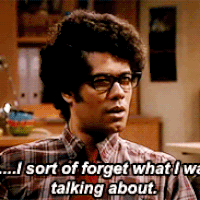An overview
I recently gave a lightning talk at Agile Northeast on the mythical technique known as multitasking. It went down quite well, so I’m writing it up here with the links to the studies I cited.
We start with a brain exercise, designed to show right off the bat how multitasking on even the simplest tasks makes your brain work harder than it has to.
Time yourself while you do the following:
write out the letters a to j, and then the numbers 1 - 10.
Then write them again, only this time alternate between letter and number; a, 1, b, 2 etc.
That second run through, did you catch yourself making mistakes? Or at least, when you put pen to paper, pausing for a split-second while your brain caught up? Can you guess why that was?

It’s because we were “Multitasking”. Well, not really; that’s a misnomer, as our brains physically cannot do more than one cognitive task at any given moment.
To use the proper term, what we just completed was an exercise in task switching. We had 2 tasks, and in the first instance we switched once, when we’d completed the first task, but in the second instance we switched 19 times. When we struggled for that brief moment to write anything, it’s because our minds were too busy trying to context/task switch to give our hands the information they required.
As you probably felt then, and have felt regularly during your careers, we cause ourselves so much stress and hard work doing this. Yet unfortunately, it’s seemingly impossible to avoid. it’s so ingrained into human nature, formed by years of employing it by “necessity”- much like any other bad habit. Even more so these days in this information-rich society, being fed news/media/pictures of kittens direct to us 24/7 from our handy pocket-borne devices. That’s already plenty on our minds at any one point, before we consider the work tasks we are supposed to be concentrating on. And it really is a bad habit, one that is difficult to kick unless we really try.
So why should we?
Studies
Let’s look into just how bad for us it can be. Luckily, There have been plenty of academic studies undertaken already that we can observe! For the talk, I referenced the following:
Stanford University
TL;DR people who regularly bombard themselves with streams of electronic data struggle to pay attention, control memory, or switch between jobs compared to those who complete tasks sequentially.
University of London
TL;DR your IQ suffers a drop of roughly 10 points while attempting to multitask, to the average range of an 8 year old child

TL;DR this more physical study found lower grey matter density in areas of the brain that handle empathy, emotional control and cognitive control, and higher levels of stress & short term memory loss in serial multitaskers.
Real world implications
Clearly then, the dangers are real.
Now, let’s put into words how seriously this can affect you and your work.
While it’s not that worrying when it takes an extra 2 seconds to write out some letters and numbers, think; how many times do you interrupt your testing or coding to “just reply to this email quickly”? Consider the difference between those tasks- do you believe your brain is able to switch adequately in the time you give it? Or to put another way, would you trust an 8 year old to answer that email or continue the work you were previously doing?
How about when you “just jump on a call”, then continue attempting to work. you suddenly hear “What do you think then?” and… panic.

Dangerous right? And for the managers/scrum masters among us- consider the productivity implications of wasting 1/10th of a second x times a minute, per x activity we’re asked to switch between…
Also consider the final study from Sussex- Brain damage, long term stress, short term memory loss… none of those are on my list of things I want to achieve.
Of course we can’t just stop doing these things, after all how else can we look and feel like we’re getting everything done? How else do we give the clients/bosses the confidence that we’re actually getting stuff done?
Actually, when we think like this, we’re blatantly lying to ourselves. It only takes a read through some studies and a moment of self-realization to understand that. The difficulties lie in forcing ourselves to stop, and convincing others that it’s ok to stop. But… isn’t part of our job to introduce ways of working that might better the efficiency of ourselves and the team?
What can we do?
There are methods of “brain training” (if you’ll excuse the cliché) I’ve been trialling recently that have helped me at times. If any or all of the above has made you rethink your work day, try them too and let me know how they go!
(1) Getting through most of a day and still feeling like you haven’t accomplished anything is not nice. It sparks fear in the mind. Unfortunately, your brain then compensates by increasing your workload; increasing the amount of task switching you’ll be doing and decreasing your productivity even further.
To counteract this, we need to avoid that feeling of disappointment in ourselves. To that end; Figure out one or two things that are important to you first thing in the morning (or the end of the day before) and work them through to completion using “concentrated time” (the opposite of multitasking) when you very first sit down for the day. This means no emails, no chats, no social media, no external distractions until you’re done, Just like timeboxing tasks. Let your team know you’ll be unreachable, and then be unreachable. Don’t worry - they’ll be fine without you for an hour or so. The relief and accomplishment this grants will leave you more relaxed and able to concentrate better for the rest of the day.
(2) Remember, being busy does not necessarily mean being effective/efficient. Once you get good at doing the above, you can start to use the 80/20 rule; A better way forwards instead of inundating yourself with several tough cognitive tasks (for me, a regular example of this situation is trying to test new features while trying to investigate production issues and handle scrum ceremonies and assist other test specialists). Identify the 20% of your work that offers the most impact, or is the most high risk (for example working a specific set of pre-release checks) and work that in concentrated time. If you’re able to do this, then inspect the other 80%; it clearly provides less immediate value and is therefore likely able to be reworked, or is altogether unnecessary.
(3) Give yourself ‘mind blank’ time. Your pre-frontal cortex (the brainy bit of the brain) can only do one cognitive task at a time. That doesn’t necessarily mean linearly completing tasks is the most efficient way of course: for example, the task I concentrate on regularly is “testing”, holistically speaking - not “this case, then that case…”. This entails working my brain hard to consider all sorts of scenarios that may occur in the application under test, and trying to cover them efficiently. It’s reminiscent of Discrete mathematics! So naturally I’ll have to think about multiple conditions at any one time. However, even when task-switching for the right reasons, you are seriously taxing your brain. So take breaks. I’m giving you an excuse! Go stare out the window. Give your mind time to integrate, assimilate and store all the information you’ve taken in.

(4) Create some sort of ‘net’ for all your stray thoughts - a notepad or similar that you can jot down all of your thoughts on. Like a Pensive in Harry Potter! Take those thoughts out of your mind, stick them in a bowl, and come back to them later. That way they’re out of your head, rather than swimming around clogging up valuable ‘RAM’.
Combining the above with an agile work place.
Agile aims to cut down on the task-switching nature of an IT environment. We work on one user story at a time until it’s completed, at which point we context switch to the next one - just like in the initial exercise. We have Scrum Masters who work to keep workplace pressures off us, so we can avoid going to meetings constantly and having to manage management expectations. We have clear deadlines (timeboxing), clear “concentrated” times for ceremonies (or mind-blank time for some of us!), a clear implementation path we can accomplish… it all fits. Now, by reprogramming our minds to cooperate with this methodology, I have to believe we will do ourselves, our team and our craft all a service.
I’m under no illusions that this isn’t tough. I’m asking you to change not just the culture and work ethic of your team, but also your very nature as a human being. It takes practice, self awareness, and lots of perseverance. But I implore you, consider it for your healthiness and your happiness. Make a change, and let me know how it goes on twitter.

